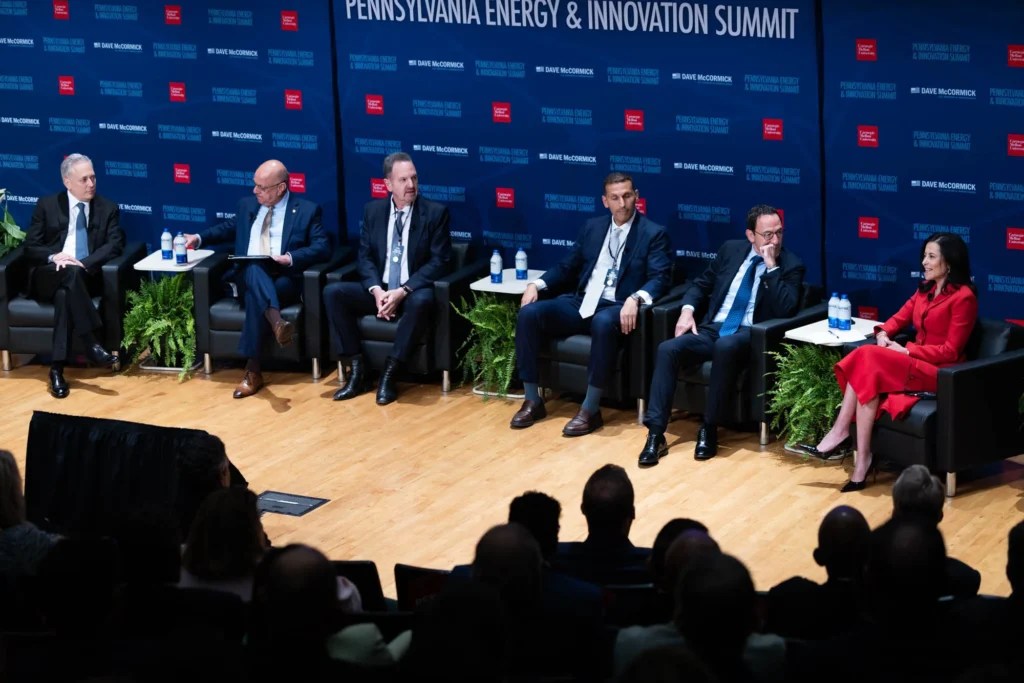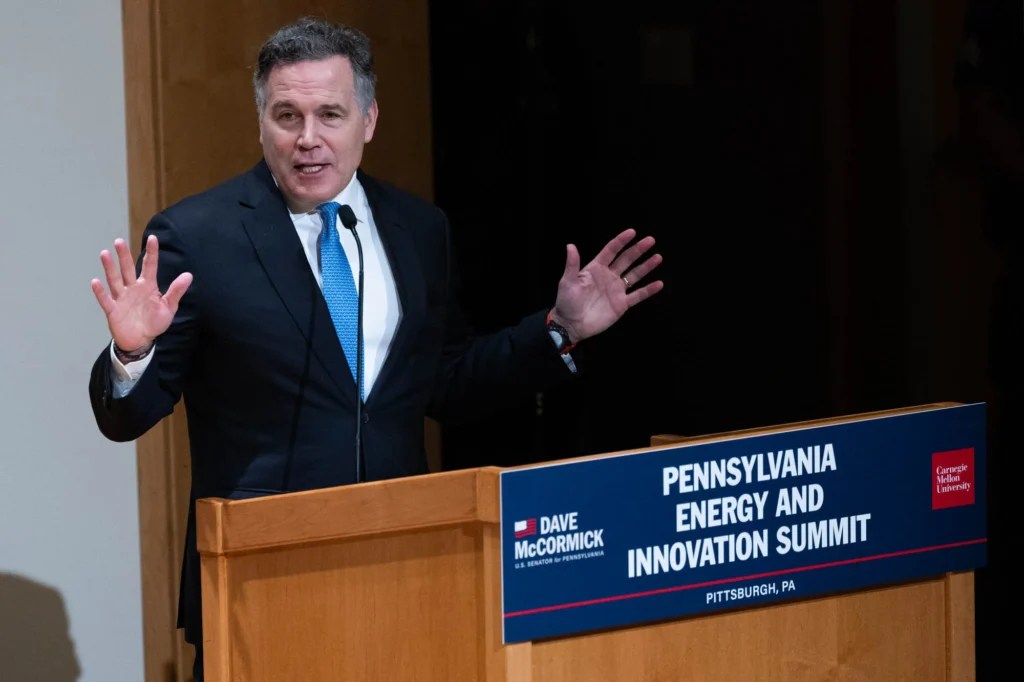PITTSBURGH — Either the United States or China will dominate the artificial intelligence landscape in five years, White House AI and crypto czar David Sacks said Tuesday, and it is his job to make sure the U.S. comes out on top.
“If, in five years, we look around the world and American companies have, say, 80% market share [in AI], it means we won,” Sacks said Tuesday. “But if we look around the world in five years and, say, Huawei has 80% market share, it means we did something very, very wrong.”
Sacks was speaking inside a packed auditorium in Pittsburgh as part of a panel discussion titled “The AI Race and How to Win It.” The event, hosted by Sen. David McCormick (R-PA), will feature President Donald Trump later in the day.
Huawei is a Chinese technology company with close ties to the Chinese Communist Party, which Sacks says the U.S. needs to outcompete. Other panelists agreed, saying the challenge will not be easy.
“Today, China produces more scientists and engineers with a bachelor’s degree than the United States, Europe, and Japan put together,” Carnegie Mellon University President Farnam Jahanian said.
But the U.S., and Pennsylvania in particular, are poised to win, the panelists argued. Pennsylvania will be key in the space because it is an energy-generating state, and AI data centers use enormous amounts of electricity.

Blackstone CEO Jon Gray predicted that energy usage will increase 40% or even 50% over the next decade and that it will make sense to locate massive data centers close to energy production sources.
“As much as this technology is so exciting, unless we get the energy side right, we can’t pursue this,” Gray said. “So it’s really important, and that’s why having the government involved is so important.”
The government is now involved in a big way, with Trump and McCormick set to announce $70 billion, raised to $90 billion as of Tuesday morning, worth of AI and energy investment in the Keystone State.
Gray further predicted that AI will be as disruptive as the railroad, the automobile, electrification, and the internet.
Along with Sacks, Jahanian, and Gray, the other panelists were Mubadala CEO Khaldoon Al-Mubarak and Arm CEO Rene Haas. Dina Powell McCormick, wife of the Pennsylvania senator, moderated the discussion.
But Sacks said the technology will create as many, if not more, jobs than it disrupts, likening it to the creation of the automobile, which led downstream to millions of factory jobs, highway-based businesses such as McDonald’s and Holiday Inn, and to NASCAR and Formula One.
WHITE HOUSE SQUEEZES SENATE HOLDOUTS TO PASS DOGE CUTS
The same can happen with AI, he said, if the U.S. can win the global race for dominance.

“Whenever you have a technology revolution this big, there’s always going to be three effects on the workplace,” Sacks said. “You’re going to get some job creation, because there’s going to be new companies, and they’re going to do new hiring. There’s going to be productivity, so a job is not made or lost, but people are able to do their jobs better with new tools. And then there’ll be some job displacement. In my view, the first two are going to greatly exceed the third.”
